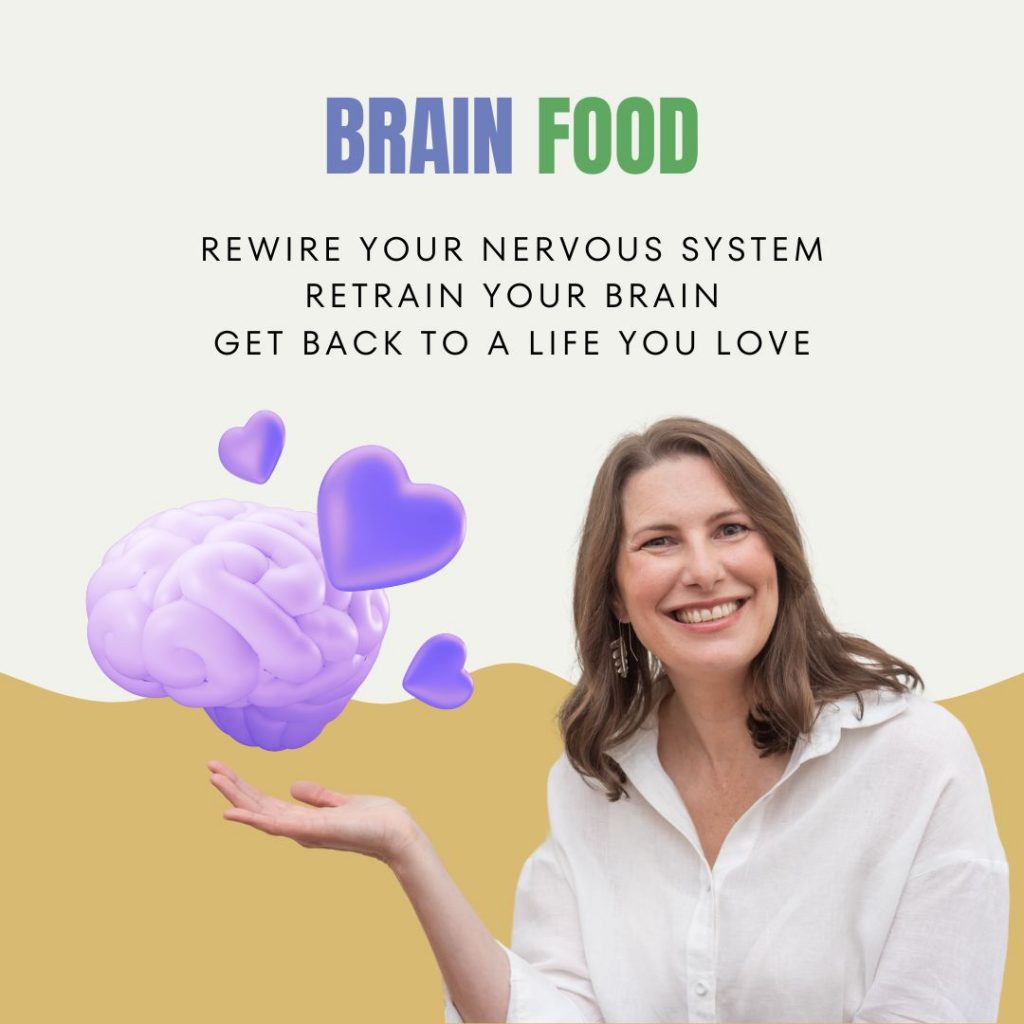If you have ever felt painful bloating after eating, noticed odd sensations in your belly, or experienced burning discomfort without any clear cause, you are not alone. Many people live with unexplained gut symptoms that do not show up on standard medical tests. When scans and scopes come back normal but the discomfort remains, it can feel confusing and frustrating.
One possible explanation for this disconnect is a condition called visceral hypersensitivity. It describes a state where your gut is not necessarily damaged or inflamed, but the signals it sends to your brain are being interpreted as if they are.
This blog will help you understand what visceral hypersensitivity is, what it feels like, how it relates to your nervous system, and why this concept matters for people living with chronic gut discomfort, histamine issues, or stress-related symptoms.
What is visceral hypersensitivity?
The term viscera refers to the internal organs of your abdomen, such as your stomach and intestines. Hypersensitivity means an exaggerated response to normal stimuli. When these two terms are combined, visceral hypersensitivity describes a condition in which ordinary sensations from your digestive system are experienced as painful, uncomfortable, or otherwise distressing.
In someone without hypersensitivity, the movement of food through the gut, the presence of gas, or gentle stretching of the gut wall goes unnoticed. But in someone with visceral hypersensitivity, these same sensations may feel sharp, bloated, burning or even triggering to the nervous system.
It is not that the gut is inflamed or injured. It is that the brain and nervous system are interpreting these otherwise routine sensations as problematic.
Common symptoms and experiences
People who experience visceral hypersensitivity may describe a wide range of physical sensations. These can vary in intensity, location, and frequency. Some of the most common include:
- Bloating that feels significant even after eating a small amount
- Pain that comes and goes and cannot be clearly linked to food, stress or other triggers
- Burning in the stomach or intestines without any signs of reflux, ulcers or inflammation
- Creepy crawly sensations in the abdomen that feel like movement or fluttering
- A heightened awareness of digestion, as though you can feel everything happening inside
These symptoms can be distressing, especially when they occur without warning or continue even after dietary changes or treatment plans.
Why does this happen?
Visceral hypersensitivity is not fully understood, but researchers agree that it involves a complex interaction between the digestive system and the nervous system. Several potential factors may contribute to the development of hypersensitivity over time:
- Post-infectious changes to the gut after food poisoning or a viral infection
- Chronic stress that keeps the nervous system in a state of high alert
- Inflammation that may have resolved but left behind nervous system sensitivity
- Altered gut bacteria that influence the way your nervous system receives messages from the gut
- Histamine overload or mast cell activation that irritates the lining of the gut and increases perception of symptoms
Over time, the nervous system can become conditioned to respond to normal gut signals with exaggerated sensitivity. Once that loop is established, it becomes easier for the body to stay stuck in the cycle.
How the gut and brain communicate
Your gut and your brain are in constant conversation through what is called the gut-brain axis. This includes physical structures like the vagus nerve, as well as chemical messengers, immune cells, and the enteric nervous system (sometimes called your second brain).
This system is meant to keep your digestion, immune response, and emotions in balance. But if something disrupts that communication — such as long-term stress, infection, or nervous system overload — the messages can become distorted.
A normal amount of gas, for example, may feel like painful pressure. The passage of food through the intestines may be experienced as discomfort. And the stretch of the stomach after a meal may be felt as bloating that seems out of proportion.
These experiences are not imagined. They are real responses coming from a nervous system that has become too sensitive to signals from the digestive tract.
Here are some more posts about histamine and stress, and understanding what happens with histamine and the histamine bucket
Research example: same signal, different response
In one study, researchers introduced equal amounts of gas into the colons of two different groups. One group consisted of people diagnosed with irritable bowel syndrome, and the other group had no digestive complaints.
The results showed that the group without digestive symptoms felt little to no discomfort! The group with IBS, on the other hand, reported pain, bloating, and pressure even though the amount of gas was exactly the same.
This illustrates that the issue is not necessarily what is happening inside the gut that’s causes the symptoms. It’s how the nervous system interprets the information that matters.
This is not something that shows up on tests
One of the most difficult aspects of visceral hypersensitivity is that it often goes undetected. Standard medical investigations such as colonoscopy, endoscopy, and blood tests may show no inflammation, damage, or infection. That does not mean your symptoms are not real!
Visceral hypersensitivity is a functional issue, which means it involves the way your body functions rather than its structure. The pain and sensations are very real. They just do not come from a source that is visible to a scope or scan.
This can be a relief for some people who worry they have missed a serious condition. But it can also be frustrating, because it means you may leave your appointment with no clear answers or solutions.
The role of the nervous system
The nervous system is designed to monitor the body for potential threats and react quickly to keep you safe. When it is functioning well, it helps you respond to pain, recover from injury, and avoid harm. But when it becomes overly sensitive or stuck in a heightened state, it can begin to respond to signals that are not actually dangerous.
This is what happens in visceral hypersensitivity. The brain starts to interpret normal digestive processes as pain, discomfort, or warning signs. As a result, you may feel like something is wrong even when the digestive system is doing exactly what it is supposed to.
And because this process can happen below the level of conscious awareness, it can feel mysterious, unpredictable, and overwhelming.
Read more here about the long-term effects of nervous system dysregulation.
Why does it matter?
If you have been living with unexplained digestive symptoms, visceral hypersensitivity may be an important piece of your story. Understanding that your brain and nervous system might be involved in how you feel in your gut can bring a sense of clarity. It helps explain why you feel discomfort even when nothing shows up on tests.
It can also help you begin to shift the question from “What is wrong with my gut?” to “Why is my system reacting this way?” That shift in perspective does not solve everything, but it can reduce fear, shame, or confusion about your body’s signals.
Visceral hypersensitivity is not something that is commonly talked about. But it may explain many of the symptoms that people with histamine intolerance, IBS or stress-related gut issues deal with every day.
If you feel like you have done all the right things, cleaned up your diet, addressed infections, adjusted your lifestyle, and your gut is still uncomfortable, it may be time to look at the way your nervous system is interacting with your digestion.
This does not mean the symptoms are in your head. It means your body is responding to internal messages differently than expected. That insight alone can be powerful.
You are not imagining things. You are not broken. You are just a human with a sensitive system trying to make sense of its signals. And you deserve care, clarity and support as you explore what that means for your healing journey.

Stuck dealing with confusing, frustrating and chronic symptoms and can’t seem to figure out why?
Join BrainFood and learn how to use the latest Neuroscience to help your body heal.
Use easy tools to reduce symptoms, calm anxiety, improve sleep, increase tolerance to foods and activities and get better results from treatments.

 Silent Reflux and Histamine Intolerance. Part 2
Silent Reflux and Histamine Intolerance. Part 2